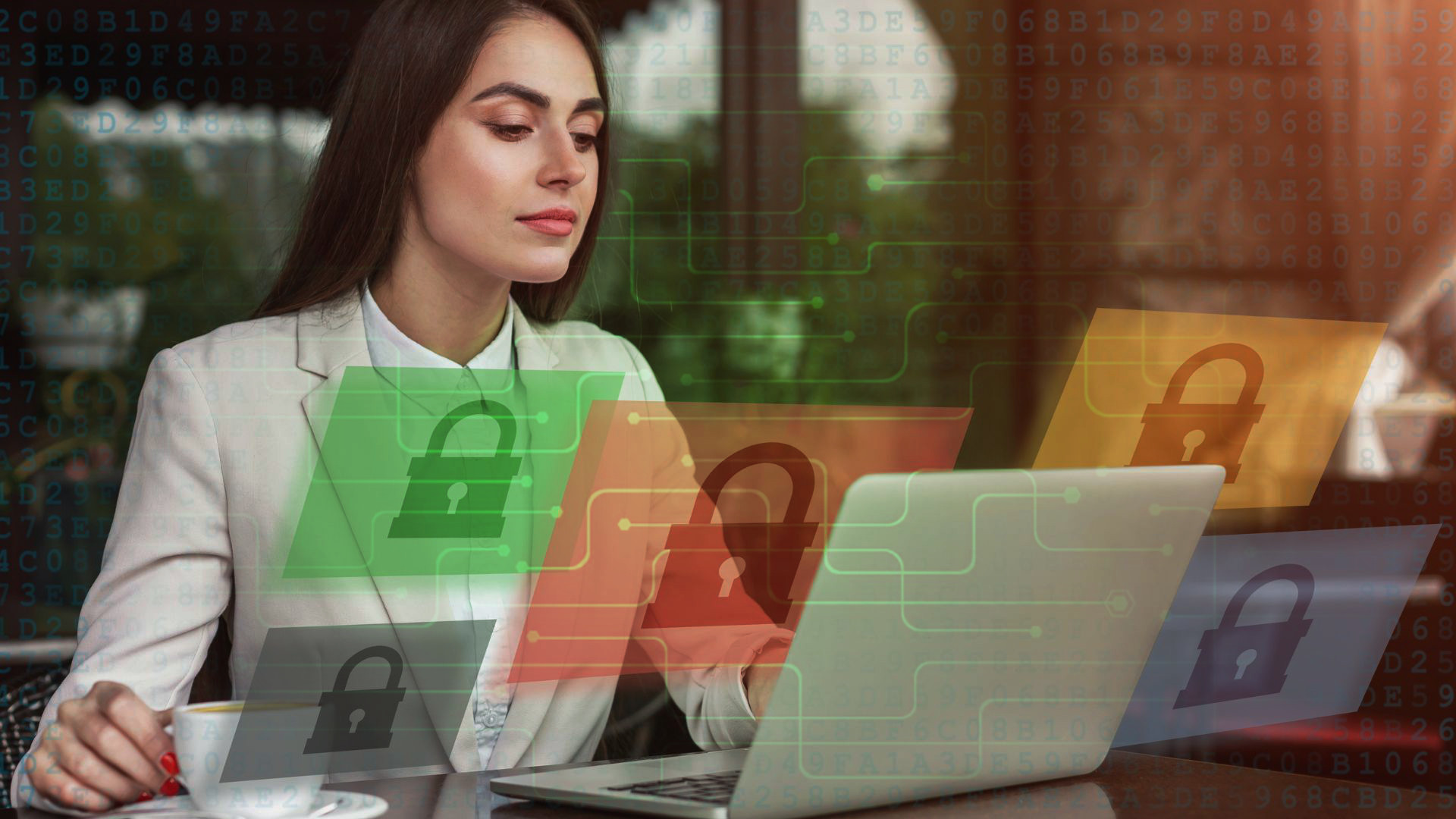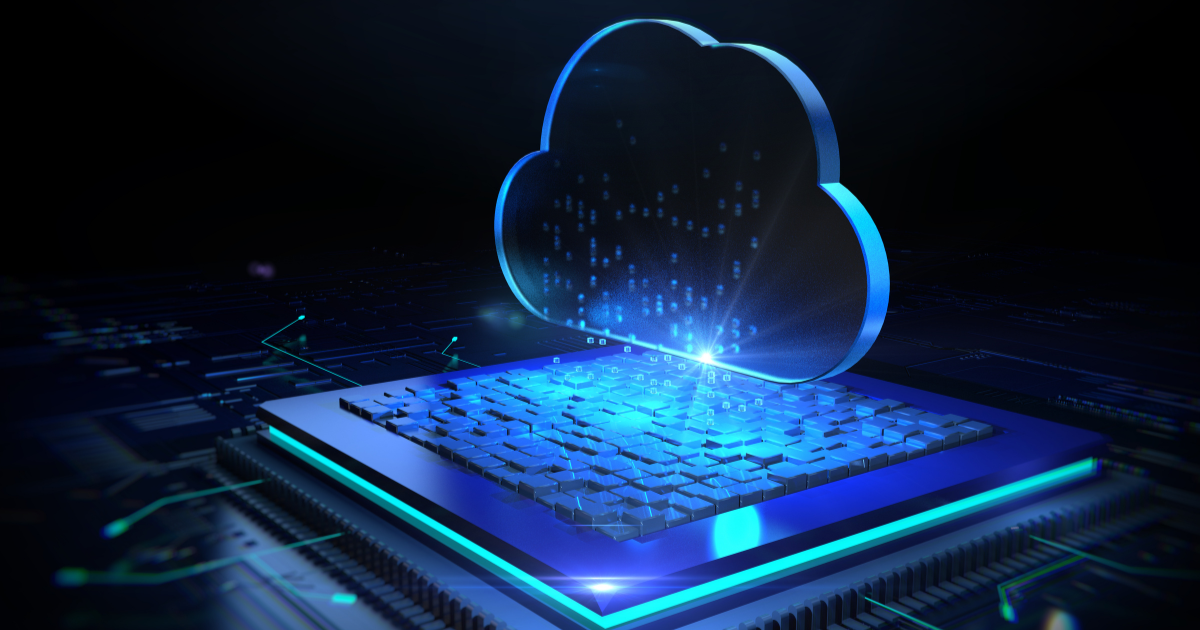Seamlessly Integrate Co-Managed IT with Your Current Team
If you have recently started a partnership to Integrate Co-Managed IT services with your business, congratulations! This decision can significantly enhance your IT capabilities and security. In today’s fast-paced digital landscape, where cyber threats are ever-present, such as the recent Microsoft attack, having a robust IT strategy is more critical than ever. Many organizations find that their internal IT teams are often stretched to their limits. By integrating co-managed IT, your staff can get some well-deserved relief while your business thrives like never before.
By combining the on-site presence and experience of your internal IT support staff with the extensive expertise of a Managed Service Provider (MSP), you can take full control over your IT infrastructure and make it work for your business. However, before you can reap the rewards of this decision, it’s essential to seamlessly integrate the two entities. While this might not happen overnight, it doesn’t have to be overly challenging.
Effective Tips to Integrate Co-Managed IT Seamlessly with Your Team
Bringing in a new set of professionals to work alongside your current IT team can present a few challenges. Similar to hiring new employees, there is an adjustment period for both parties. However, there are some simple strategies you can employ to make the transition as smooth as possible.
Communicate Openly and Regularly to Integrate Co-Managed IT
Open communication is key to eliminating confusion and fostering high-functioning collaboration. From the start, ensure that both teams maintain clear lines of communication. Regular meetings, often in an online setting, should be held where questions are welcome and robust idea exchanges are encouraged. This will keep everyone on the same page and help both teams adapt quickly.
Clearly Define Roles to Integrate Co-Managed IT Successfully
In an effective IT collaboration, your in-house team and the MSP must have well-defined roles and responsibilities. There may be concerns from your in-house staff, especially if they feel like they’re being replaced. It’s crucial to clarify that this is not the case. By ensuring that each team fulfills its specific roles, your IT infrastructure can function like a well-oiled machine, steadily propelling your business forward.
Delegate Routine Tasks to Your MSP
Routine IT work, while relatively straightforward, can consume a significant amount of time that your in-house staff could use on more critical tasks. Co-managed IT providers typically have teams dedicated to handling these repetitive tasks. Delegating such work to them allows your internal team to focus on strategic projects that drive innovation and growth.
Leverage MSP Expertise to Boost In-House Efficiency
While your internal IT team knows your business intimately, they might not always have the best solutions for every problem. On the other hand, MSPs maintain a vast pool of IT experts with diverse skills and resources. By giving your in-house team access to this level of expertise, their efficiency and problem-solving capabilities will dramatically increase.
Integrate Co-Managed IT to Strengthen Security Against Threats
In light of recent cybersecurity threats, such as the Microsoft attack, integrating co-managed IT into your security strategy is more crucial than ever. These breaches highlight the need for robust, proactive security measures. Co-managed IT can provide additional layers of protection by monitoring systems continuously, identifying vulnerabilities, and responding to threats swiftly. This partnership ensures that your IT infrastructure remains secure against emerging threats, safeguarding sensitive data and maintaining business continuity.
How to Integrate Co-Managed IT for Business Success
Integrating a third-party IT provider with your in-house staff may be complex, but it’s necessary for the continued growth and security of your business. By following the simple yet effective tips outlined above, you can build a smooth, reciprocal relationship between your internal and external IT teams. This collaboration will not only enhance efficiency but also bolster your defenses against cyber threats.
If you’ve recently partnered with an MSP or are considering doing so, now is the perfect time to read our Essential Guide to Co-Managed IT: Make Informed Decisions for Your Company’s IT Strategy. Download it for free right here. If you have questions about co-managed IT services or wish to explore how they can protect your business from threats like the recent Microsoft attack, we’re here to provide the answers you need. Call us today or view our library of free resources!
Stay Protected with Managed Cybersecurity Services
Cyberattacks are among the most serious threats that businesses today are facing. As technology evolves, so do these online threats that target businesses of all sizes. There are many ways to protect your data and your network, like using a reliable anti-malware program or regularly educating your staff on security measures. However, the best way to get maximum protection for your business is by subscribing to managed cybersecurity services.
What is Managed Cybersecurity?
Managed cybersecurity services are a range of security solutions offered by third-party IT providers. This service is designed to safeguard businesses and other organizations against even the most vicious online attacks. They include everything from the installation of firewalls to 24/7 monitoring of your networks for prompt detection of and action against threats.
There are tools available on the cloud that businesses can use to defend themselves against cyberattacks. However, if you want maximum protection against cyber threats and data breaches, partnering with a managed cybersecurity services provider is the way to go.
Benefits of Managed Cybersecurity for Businesses
MSPs that specialize in cybersecurity solutions can implement a range of comprehensive security measures and proactive solutions to keep your business protected. Here are some of the primary benefits that you can expect once you start working with a reputable provider:
Guaranteed Cybersecurity Expertise
It is not easy to find independent IT professionals who are well-versed in all the different areas of cybersecurity. Hence, there is no guarantee that an in-house tech guy can protect your system from all the threats online. Managed cybersecurity services can give you prime solutions for any security concern and ensure the safety of your systems.
Quick Response
Cyberattacks cannot always be avoided, but with rapid action, the damage can be minimized. On your own, even identifying the cause of a breach can take a long time. Meanwhile, the hacker would already be stealing data and wreaking havoc. Highly skilled cybersecurity experts, however, can identify and address the problem quickly, keeping the damage as minimal as possible.
Compliance Made Easy
As technology advances and threats evolve, data protection regulations are also becoming more complex. Complying with these regulations can significantly add to the burden of a business. A managed cybersecurity services provider can efficiently take care of all these compliance issues, giving you peace of mind and leaving you time to run your business.
Reduced Expenses with Managed Cybersecurity
Not many realize it but cybersecurity solutions can be very expensive. Licensed anti-malware programs alone can cost a pretty penny, plus you need to pay cybersecurity professionals to install and maintain these solutions for you. Naturally, you do not want to skimp on security solutions because you want the best protection for your company, but you wouldn’t want to spend more on it than is necessary either. With a good provider, you don’t have to. You can get the best managed cybersecurity solutions at a much lower cost.
Fortify Cybersecurity Expenses Using Our Excessive Spending Calculator
Many business owners spend more on cybersecurity than they should. In their desire to keep data and networks protected, they are very willing to purchase many solutions that will supposedly boost their defenses. The intention is good but if it is leading to unnecessary expenses, it’s time you take a closer look. You can do this with the help of our Excessive Spending Calculator.
The Excessive Spending Calculator is a handy program that can help you pinpoint areas in your business spending that you can curtail. It can help you prioritize investments so that you can fortify your cybersecurity defenses. You can download it for free right here.
Hackers show no signs of slowing down, and any business can be a target. Make sure you are prepared for any attack by keeping your defenses in top condition, with the help of a dependable managed cybersecurity services provider. We can also answer any questions you might have about cybersecurity and other MSP services. Just say the word, and we will be right over for a free consultation!
Business Success: Embracing Managed Service Providers
Cutting-edge IT solutions are a top priority among businesses in today’s digital world, and it’s no big surprise. Technology continuously evolves, sometimes at a frighteningly rapid pace. You must be equipped with the latest software and hardware to achieve that business success.
Business Success: Impact of Technology Changes
There used to be a time when it was the norm for businesses to take a reactive approach to changes in technology. Businesses created and implemented IT solutions as a response to problems after these problems had already caused damage.
In recent years, the trend has shifted toward proactive solutions. Experts anticipate potential problems and implement solutions that will keep them from escalating. The more technology advances, the more potential problems might come up. Hence, to maintain high business success, it is more important than ever to engage in proactive tech solutions for businesses.
Benefits of Proactive Business Tech Solutions
Implementing proactive business tech solutions can do a lot of good for business success. Here are just some of the top benefits:
Improves Efficiency for Business Success
Business operations can run a lot more smoothly with a proactive IT solution. Business can go on as usual if downtimes decrease. These will not only improve efficiency but can also ultimately increase revenue and boost your reputation among your clients.
Reduces Costs
There will be some initial spending involved, but in the long run, the cost savings will be immeasurable. You can use our Business Excessive Spending Calculator to compare how much you would be spending before and after. With a dependable solution in place, you can avoid many expensive IT issues in the future, like system failures, extensive downtimes, or data breaches.
Boosts Work Performance
Part of proactive IT is the integration of all IT processes in your business, creating a seamless operation that will ultimately boost performance. This will speed up your systems and minimize delays, allowing your employees to maximize their productivity.
Mitigates Risks for Business Success
Proactive solutions play a role in mitigating risks and improving the overall security of your business. With non-stop monitoring, breaches or system errors will be detected and addressed quickly without disrupting operations. The system will also afford greater protection over your database and networks, keeping them safe during a cyberattack.
Allows for Scalability
Traditional business solutions can be limiting in terms of business growth. With a proactive solution, you can adapt to changing market demands. Even if you don’t have a concrete plan where you want your business to be a few years down the line, the scalability and versatility of a proactive system can easily allow growth and expansion to happen.
Business Success: Top Ways to Implement Proactive Tech Solutions
Predictive Analytics
One of the most popular proactive solutions used by businesses today is predictive analytics. In this process, experts locate patterns to predict future business trends through machine learning, AI, data analysis, and statistical models. This practice is useful in several business applications, like forecasting cash flow, sales trends, even product malfunctions, and so on.
AI-Driven Automation
Using large databases, AI-driven automation can make highly informed business decisions to address problems long before they even become an actual issue. The applications of these AI-powered solutions are endless—from identifying when a piece of hardware needs to be replaced to executing algorithms that can nullify potential cyber threats.
Cloud Computing for Business Success
Taking your business to the cloud is a proactive decision, as it eliminates multiple problems in terms of accessibility, storage, scalability, security, and even cost. Cloud computing can also be tailored to meet the specific needs of your business, which is why it is important to work closely with your IT provider, who can provide the most suitable solutions for you.
Find the Right Proactive Solutions with the Help of a Managed Service Provider
Navigating the world of IT business solutions on your own can be intimidating, which is why it is highly advisable to partner with a managed services provider that can help you. They can help achieve your goal of business success in this market.
Did you know that by keeping on using your old equipment, you might be spending more than you should? Try using our Business Excessive Spending Calculator and you’ll be surprised at how much money is unnecessarily going out of your business. You can download the calculator right here.
To learn the benefits of the Spending Calculator, be sure to watch our Webinar on demand, and find out the answer to this question: “Are you aware of what you’re paying for your IT Services?” Watch the Webinar HERE!
If you need help or have questions about managed services, call us anytime!
Top IT Strategies to Drive Business Growth in 2024
Technology evolves at a rapid pace. There is no stopping the onset of new infrastructure, IT strategies, tools, or concepts that would surely be integral to business growth. It can be a struggle to try to catch up with these new advances. So instead, why not take measures to keep you a couple of steps ahead? By anticipating the changes and having the necessary solutions in place to address them, your business can maintain its forward thrust and not get caught unprepared.
Staying ahead of the curve seems ideal and is possible, although there are some challenges that you are likely to encounter along the way. To minimize possible hiccups, create and implement your business growth strategies with the utmost care.
Key Elements of Business Growth IT Strategies for Staying Ahead
To ensure your business keeps up with technology, you need to be on the lookout for new opportunities to learn and grow. This includes attending webinars, following IT blogs, interacting with tech experts, and so on. Not only that, but also consider some important aspects when building your business growth strategies, especially the ones we have listed below.
Scalability IT Strategies
It makes perfect sense for small businesses to make do with only the most fundamental IT solutions while starting. However, many basic IT infrastructures are severely lacking in scalability. When the time comes for your venture to expand, there will be a marked increase in data volume, user load, and business transactions. Is your system capable of all this extra load while maintaining the same optimal performance?
Security IT Strategies
The more your business grows, the more it will be exposed to security risks. Many small business owners don’t even have a robust cybersecurity solution in place, relying only on ordinary antivirus software or similar measures. This flaw makes your company vulnerable to data breaches and other kinds of cyberattacks. Basic security tools will no longer suffice as your business grows, and you will have to shift to more comprehensive security strategies to stay protected.
Integration
Another common challenge for growing businesses has to do with integration. Most businesses apply several tech solutions as needed over time. Now, these systems might be effective individually, but they might not be in sync with each other. This can lead to a myriad of problems in business operations. A seamlessly integrated IT business system can lead to better productivity, better communication, better access to data, and a more streamlined growth process.
Resource Allocation
It is very tricky to operate and grow a business with limited resources. A business owner needs to set their priorities, making sure that all IT needs are met, along with all the other crucial requirements of the business, without going over budget or overburdening the staff.
Get a Head Start by Partnering with a Reliable IT Provider
Even the most competent business manager would have a tough time handling all the above challenges. The only feasible way to conquer them and stay ahead of the technology curve is to partner with a reliable IT provider. This way, you will have access to the best IT strategies, provided by highly trained experts in their respective fields. You won’t have to micro-manage all the technology in your business. Instead, you can focus on running your business while your IT provider manages your company’s tech needs.
In choosing your tech company, make sure you are getting the services you need at a reasonable price. Our Business Excessive Spending Calculator will help reveal any hidden costs from an IT provider. You can download the calculator right here.
To learn the benefits of the Spending Calculator, be sure to watch our Webinar on demand to find out the answer to this question: “Are you truly aware of what you’re paying for your IT Services?” Watch the webinar HERE!
If you need further information, give us a call, and we can schedule you for a free consultation!
2024 Tech Trends in IT: The Rise of AI, Cloud Computing, and Cybersecurity
As we enter 2024, the IT world is not just changing; it's undergoing a radical transformation. Businesses are enjoying technological advancements spearheaded by rapid advancements in Artificial Intelligence (AI), cloud computing, and cybersecurity. This evolution of 2024 tech trends is not a mere shift; it's a total reinvention of how technology streamlines operations, boosts productivity, and fortifies security. At the heart of this revolution stands Intuitive Networks, leading the charge with cutting-edge solutions.
INI's role goes beyond implementing new technologies. We're crafting a future where AI's analytical prowess, cloud computing's scalability, and cybersecurity's resilience converge to create a new standard in business operations. Our vision is to make these powerful technologies accessible, understandable, and actionable for businesses of all sizes. Read on to discover 2024 tech trends, how they will transform IT services, and how INI incorporates these emerging technologies into what we do.
The Revolution of AI in IT Services
AI has evolved from a futuristic concept to a practical tool in everyday IT operations. Its role in transforming IT services is significant, affecting various aspects of business operations. At INI, we have harnessed AI to automate routine tasks, freeing up valuable human resources for strategic initiatives. This automation goes beyond simple tasks; it involves complex processes that require adaptive learning and decision-making capabilities.
AI's influence extends to data analytics, where its ability to process and analyze large volumes of data is unparalleled. This capability enables businesses to gain deeper insights into their operations, customer behaviors, and market trends. Implementing AI in projects has streamlined operations and provided our clients with a competitive edge through data-driven strategies.
Cloud Computing: The New Backbone of Business Operations
Cloud computing has revolutionized how businesses operate, transitioning from a mere alternative to an indispensable part of modern business infrastructure. Its appeal lies in its flexibility, allowing companies to scale their operations quickly and efficiently without the significant capital expense of traditional IT infrastructure. This adaptability is crucial in today's fast-paced business environment, where agility often dictates success.
At Intuitive Networks, we understand that each business has unique requirements and challenges. Our approach to cloud solutions is, therefore, highly personalized. We don’t just offer a one-size-fits-all solution; we design cloud environments tailored to each client's specific needs. This customization ranges from hosting critical applications to providing robust data storage and collaborative platforms suited for remote or hybrid work models. We aim to provide comprehensive solutions that enhance various business operations, including communication, project management, and data analytics. These solutions are designed to store and protect your data, optimize your business processes, and give you a competitive advantage in the marketplace.
Cybersecurity in the Age of Digital Transformation
When it comes to 2024 tech trends, Cybersecurity has transitioned from a secondary concern to a necessity for businesses. The rise of online operations has also escalated the complexity and frequency of cyber threats, making robust cybersecurity systems imperative for safeguarding sensitive data and ensuring uninterrupted business operations.
We recognize the evolving nature of these threats and are committed to providing state-of-the-art cybersecurity solutions. Our comprehensive approach encompasses protection against current threats and preparation for emerging risks. We continuously update our strategies and tools to counteract evolving cyber threats effectively.
Our cybersecurity services include advanced threat detection, real-time monitoring, and rapid incident response, ensuring that businesses are not only shielded from potential cyber-attacks but also prepared to respond swiftly and effectively in case of a breach. This proactive stance towards cybersecurity secures critical business data and maintains customers' trust and confidence. By partnering with INI, businesses gain access to cutting-edge, custom cybersecurity measures that meet and exceed their unique needs and industry requirements.
Supporting Remote and Hybrid Work with Advanced IT
The surge in remote and hybrid work models, accelerated by global shifts, has significantly altered the landscape of IT demands. We have swiftly adapted to these changes, developing tools and strategies tailored to support seamless remote operations and effective collaboration.
Our approach ensures that businesses can operate efficiently, regardless of their employees' physical locations. We offer advanced solutions for remote IT support, including secure cloud-based platforms, virtual collaboration tools, and remote desktop services, facilitating a connected and productive work environment.
INI: Your Partner for a Tech-Savvy Future
The IT industry is constantly evolving, with new technologies emerging rapidly. At Intuitive Networks, we recognize that each business has unique IT challenges and goals. That's why our commitment to personalized IT consultation is the cornerstone of our approach. We don't just offer generic services; we learn each client's specific needs and craft IT strategies that align perfectly with their unique needs.
Our process begins with thoroughly understanding your business operations, objectives, and challenges. This deep dive enables us to tailor solutions that solve immediate IT problems and support long-term business goals. Whether customizing cloud solutions, developing specific cybersecurity protocols, or integrating advanced AI technologies, our solutions are as unique as your business.
Ready to transform your business with the latest IT? INI is dedicated to equipping you with cutting-edge technology solutions, ensuring you stay ahead in the rapidly changing IT landscape. Contact us for a free consultation to explore how our services can benefit your business and prepare you for the future.
How Will a Cyber Attack Impact Your Business?
Today, businesses heavily rely on technology, digital platforms, networks, and data storage to streamline operations and enhance productivity daily. However, this increased reliance exposes companies to growing cyber threats and attacks. Hackers and cybercriminals are becoming increasingly sophisticated, using advanced techniques to exploit computer systems, networks, and software vulnerabilities. These attacks range from data breaches and ransomware infections to phishing scams and denial-of-service (DoS) attacks.
Financial Impact of Cyber Attacks
When a cyber-attack occurs, the financial ramifications can be significant in direct and indirect costs.
Direct Costs One of the direct costs that businesses may encounter is the payment of ransoms. In ransomware attacks, organizations may be forced to pay a ransom to regain access to their encrypted data or systems. These payments can be substantial and can drain financial resources. Another direct cost is related to system recovery. After an attack, businesses often need to invest in restoring and repairing their compromised systems, networks, and infrastructure. This can involve hiring specialized IT professionals, purchasing new hardware or software, and conducting forensic investigations to identify the extent of the breach. These expenses can add up quickly and strain the company's finances.
Indirect Costs Beyond direct expenses, cyber attacks can also result in significant indirect costs. One of the most impactful indirect costs is the loss of business. When customer data is compromised, clients may lose trust in the company and turn to competitors. This loss of customer confidence can lead to a decline in revenue and market share, potentially causing long-term damage. Businesses may also face legal fees and fines. Data breaches often trigger legal obligations, such as notifying affected individuals and regulatory bodies and potentially meeting legal action from involved parties. The costs associated with legal representation and potential fines can be substantial, adding another layer of financial strain.
Considering the direct and indirect financial impacts of cyber attacks, it’s clear that investing in robust cybersecurity measures is necessary to protect sensitive data and safeguard the organization's economic well-being.
Operational Impact of Cyber Attacks
One of the immediate operational impacts is the disruption of operations. This can manifest as significant downtime, where essential systems and networks become inaccessible or unusable. This can bring productivity to a halt, leading to delays in delivering products or services and potentially causing financial losses. Cyber attacks can also disrupt the supply chain. When a business relies on external partners or vendors, any compromise within the supply chain can delay receiving critical resources or components.
Cyber attacks can cause damage to the infrastructure of a company. Systems that have been compromised may require extensive repairs or replacements, resulting in additional costs and time-consuming efforts. In some cases, the attack may even destroy physical assets, including servers or other hardware, further hindering operations.
The impact of a cyber attack is not limited to the technological aspects; it also affects the employees within the organization. Following an attack, employees often face an increased workload as they work to restore systems, recover data, and implement enhanced security measures. The added pressure can lead to stress and burnout, impacting employees' overall well-being and productivity.
Business Reputation at Stake
The reputational impact of a cyber attack can be profound and long-lasting, affecting a business's standing in the eyes of its customers, stakeholders, and the public. When news of a cyber attack spreads, it can create a sense of unease and mistrust among existing and potential customers. The breach of sensitive data or compromised security can lead to negative perceptions about the company's ability to protect the privacy and security of its customers' information.
Legal and Regulatory Impact
Legal liabilities stemming from cyber attacks can result in lawsuits filed by affected individuals or entities seeking compensation for damages. The costs associated with legal defense and potential settlements can be substantial, straining the financial resources of the targeted business.
In the aftermath of a cyber attack, businesses may face Regulatory penalties for failing to protect sensitive data or adequately comply with industry standards.
Protect Your Business From Cyber Attacks
Understanding the impacts of a cyber attack is crucial for businesses of all sizes. Investing in security solutions, implementing preventive measures, and staying informed are critical steps in safeguarding sensitive data and maintaining business security. By proactively addressing cybersecurity concerns, businesses can protect their assets, strengthen customer trust, and ensure long-term resilience in the face of ever-evolving cyber threats.
Don't wait for an attack to happen – let our experts assess your security needs and provide tailored solutions to safeguard your valuable data. Schedule your FREE consultation with Intuitive Networks today and stay one step ahead of the hackers.
Schedule a FREE Consultation
Zero-Trust Model - Is it Right For Your Business?
The Zero-Trust Security model shifts our thoughts about security. No, this isn’t some new product or service we’re trying to pitch. Instead, think of it this way: rather than identifying something you’d like to protect and building a wall around it to keep hackers on the outside, all users must constantly prove themselves trustworthy - whether inside or outside the network. In the world of constantly expanding remote work and cybersecurity, a shift to zero-trust security can be a game changer. Why zero trust? Well, it’s in the name: zero trust means “trust no one, verify everyone.” This cybersecurity concept arose because most data breaches often happen from the inside - such as when a hacker steals someone’s credentials, allowing them to move around virtually unchecked. According to recent research by IBM, the average data breach cost amounted to $4.24 million. And according to a recent study by Cybersecurity Insiders, 73% of organizations are in various stages of zero trust security adoption.
But before you can decide whether or not zero-trust security is the right move for your company, let’s dive deeper into how it works and some benefits of this shift in cybersecurity.
How Does Zero-Trust Security Work?

Zero-Trust security operates on two guiding principles: continuous validation and least-privileged access.
- Continuous Validation: Your cybersecurity uses a continuous process of authorization rather than a single validation. This means the user must prove their trustworthiness before moving through the network. One way to think about this is that there is a house, and each user has a unique set of keys to get in. Each user may have a key to get them into the front door, but each room inside the house requires another set of keys, and once you enter a room, the closet or dresser also requires a different key for each. In this example, the keys all represent other points of validation needed for each user to move throughout the network.
- Least-Privileged Access: Access is restricted based on each user’s identity and context. For example, one user might only be able to access the applications required to perform their job rather than access everything within the network.
Benefits of Zero-Trust Security
If you’re a company with remote workers, cloud-based services, or possibly both, the zero-trust security model is an ideal consideration for your business. There are several reasons for this. Remote works use a variety of wi-fi networks and devices - all of which have access to sensitive company information. The zero-trust model can help solve the issue of how to protect your company’s data by closing those security gaps. Other benefits include:
Specific Identity and Access Management
Identity and Access Management (IAM) is one of the first steps to a zero-trust model. IAM creates secure connections between people, devices, apps, and data by using a single identity solution that gives you flexibility and control. When used with multifactor authentication (MFA), every identity is verified before being granted access; Each employee’s access can be controlled in relation to their position in the company.
Simple Integration
A well-designed zero-trust security solution is easily integrated with an organization's identity management system. Users will benefit from a seamless and transparent authentication and access system. Since IT and security teams can easily define access policies that follow users across their devices, this will significantly reduce malware and ransomware attacks.
Easy Scalability
Since zero-trust security systems are cloud-native, it’s easy to scale across your entire workforce regardless of end-user location or choice of devices. This means you can rest assured that your company’s data is safe without disrupting your everyday workflows.
Interested in Zero-Trust Security for Your Business?
A successful zero-trust security approach aims to easily integrate, consolidate, and simplify many legacy cybersecurity technologies. This means no more IT headaches and late nights worrying about data breaches! You and your employees can rest assured that your company’s data is safe no matter where and on their working devices. Employees will have access to the resources they need to do their jobs.
Zero-trust systems can also help create automated threat responses and help track security threats. We know how important it is to keep your company running smoothly and securely. Implementing a zero-trust security system is worth considering as more employees move to remote or hybrid work environments. If you think this cybersecurity solution is right for your business or have questions about zero-trust security, our team can help! Our IT team is here to help alleviate your cybersecurity pain points. Just contact us to get started!






